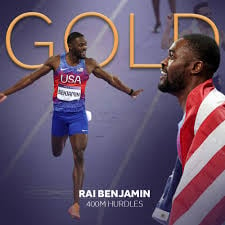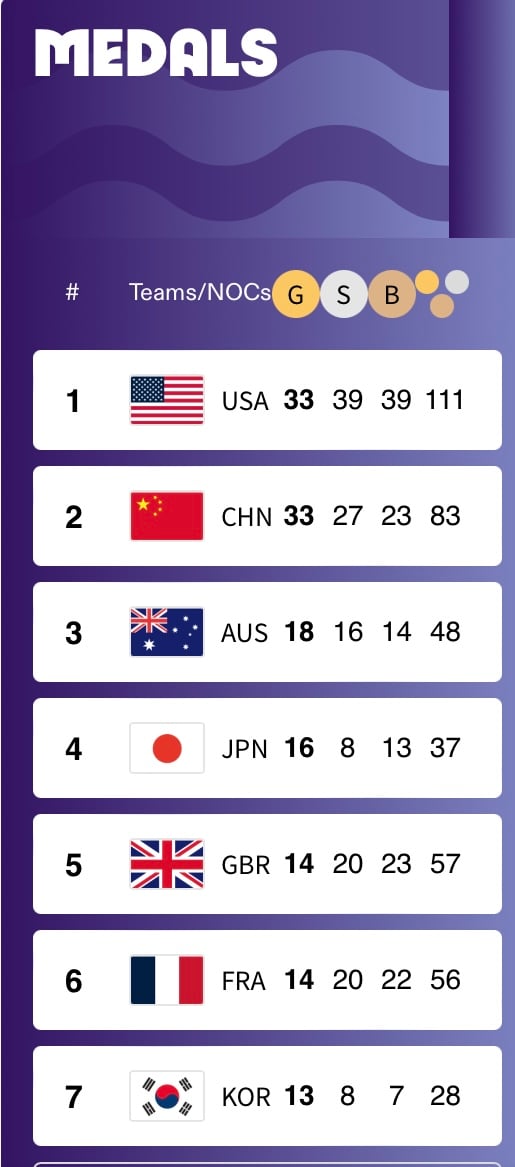Saturday, August 10, 2024. Annette’s News Roundup.
Kamala is always busy.
An inspiring 20K people in Arizona for the Harris-Walz rally. Sorry not sorry MAGA lunatics, you can’t fake this crowd or this energy.pic.twitter.com/MSyeR30Wk5
— Ricky Davila (@TheRickyDavila) August 9, 2024
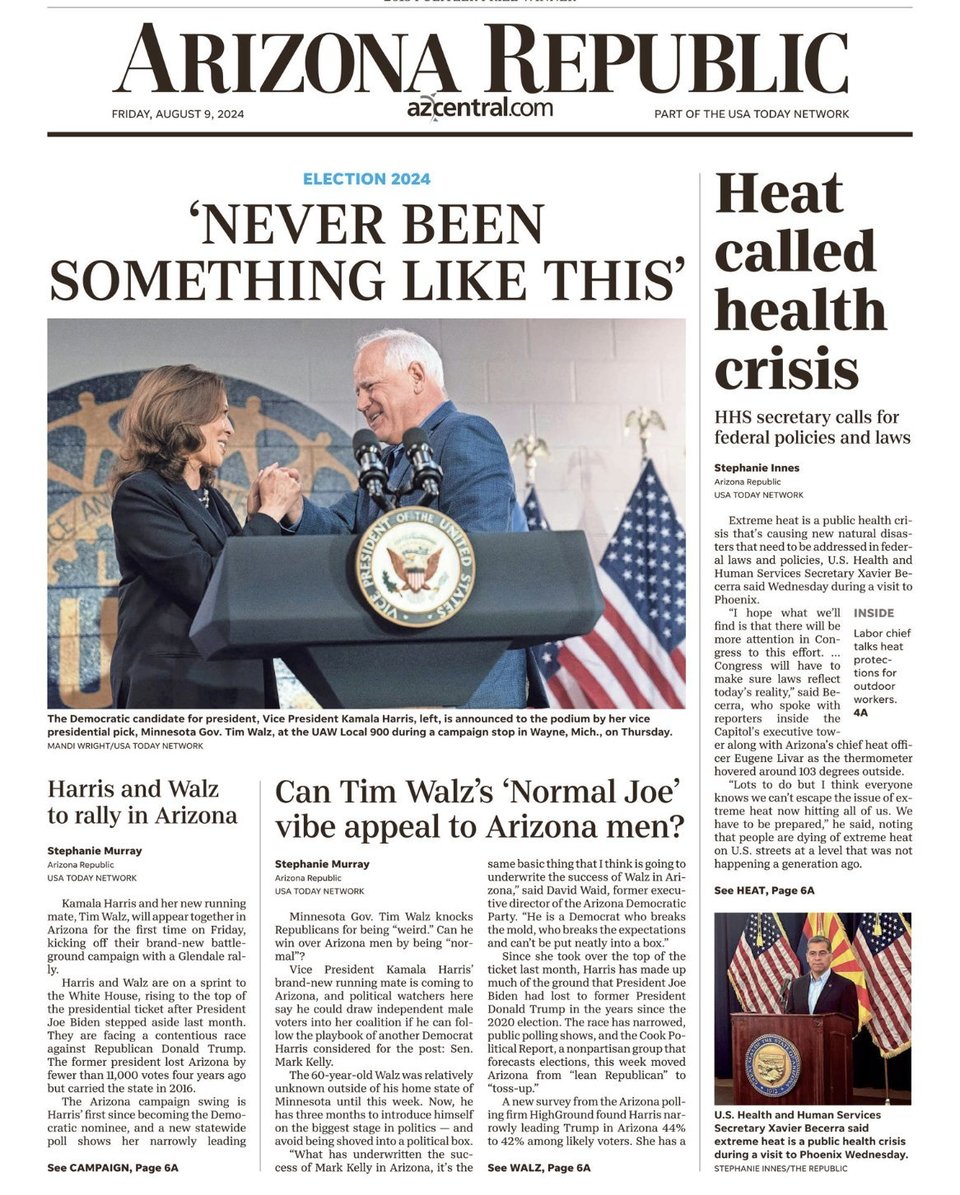
The latest polls show that Kamala Harris has now taken the lead in Michigan, Pennsylvania, Wisconsin, Arizona and Nevada. The size and enthusiasm of crowds at Harris-Walz rallies — like this one today in Glendale, AZ — help explain why.#HarrisWalz2024pic.twitter.com/8VZHO4Jzhq
— Jon Cooper (@joncoopertweets) August 9, 2024
Overall, 85 percent of Democrats and 88 percent of Republicans say they will vote, compared to 81 percent of Democrats and 90 percent of Republicans last month.
Among Black voters, a key demographic for Harris, 74 percent said they would “definitely” vote compared to 58 percent when Biden was the nominee. (The Hill).
One more thing. Or more.
Trump always claims “biggest ever” crowd size. The “crowd” wasn’t there in Montana yesterday where Trump travels not for votes (Montana is painfully red) but for revenge. He hates Democratic Senator Jon Tester. In fairness, Trump never arrived at all, because mechanical issues forced his plane to land in Billings.
Again, Trump claims “biggest ever.” As it was for his inauguration in 2016, the answer is NO.
Todays Trump rally in Bozeman, an hour before his supposed arrival. Tomorrows Truth Social rant, biggest crowd ever, bigger than Harris in Glendale. pic.twitter.com/ESDhiNUjv8
— Robert Jones (@RobertJ09323900) August 10, 2024
Harris campaign weaponizes crowd size against Trump.
It's not just Donald Trump obsessing about crowd size at events. Democrats are gleefully jumping into the comparison game, powered by a surge in grassroots enthusiasm.
Why it matters: For the first time in more than a decade, Democrats believe the candidates are right — and the conditions are ripe — to break up Trump's monopoly over raucous campaign rallies.
Zoom in: The shift in mindset is clearly driving Trump nuts.
Vice President Kamala Harris and Minnesota Gov. Tim Walz are drawing huge crowds as they barnstorm swing states this week, generating an exuberant atmosphere that had been missing from the Biden campaign.
For the digitally savvy Harris campaign, the public displays of enthusiasm are valuable not just for driving fundraising and earned media — but also for needling Trump on his home turf.
What they're saying: Asked Thursday whether he was "worried at all by the size of Harris' crowds," a visibly frustrated Trump lashed out at the "dishonest" press and claimed his rallies were "10 times, 20 times, 30 times" bigger.
Later in his news conference at Mar-a-Lago, Trump pivoted from a question about the violence on Jan. 6 to boast about the size of the rally he held on the Ellipse shortly before his supporters attacked the Capitol.
"In history, for any country, nobody's had crowds like I have," Trump said. "If you look at Martin Luther King when he did his great speech … and you look at the picture of his crowd, my crowd — we actually had more people."
Flashback: In 2016, Hillary Clinton frequently opted for modest, policy-focused events over packed arenas — drawing a stark contrast with Trump and Democratic primary rival Bernie Sanders.
In 2020, President Biden paused in-person campaigning after the onset of the COVID-19 pandemic, before eventually resuming with socially distanced events and drive-in rallies.
In 2024, concerns over Biden's age sapped the Democratic energy needed to drive huge crowds, even before the 81-year-old's disastrous debate performance and eventual withdrawal.
Zoom out: At her first rally as a candidate last month, Harris packed a roughly 8,000-capacity arena in Atlanta and produced an atmosphere that some attendees compared to Barack Obama's first campaign in 2008.
In Philadelphia on Tuesday, Walz appeared visibly staggered by the 14,000 joyous supporters who came out to welcome him to the Democratic ticket.
In Eau Claire, Wis., on Wednesday, droves of rally-goers ditched their cars along rural roads and walked miles in the heat to the venue, Axios Twin Cities' Torey Van Oot reports.
Later that day in Detroit, the Harris campaign took a page out of Trump's playbook by holding its rally in an airport hangar. The candidates arrived on Air Force Two to the tune of Beyoncé's "Freedom."
Between the lines: Trump, who has spent years fixated on rally optics, takes any mention of Harris' crowd size as a personal affront.
In posts on Truth Social, the former president has baselessly claimed that Harris' campaign is paying people to attend its rallies.
Other Trump allies argue turnout has been artificially juiced by free musical performances from artists such as Megan Thee Stallion in Atlanta and Bon Iver in Wisconsin.
Reality check: As Trump learned in 2020, large-scale rallies don't necessarily translate to electoral success.
(Axios)
Next stop. North Carolina and Texas.
Alpha Kappa Alpha, Inc., Harris' sorority, forms a political action committee.
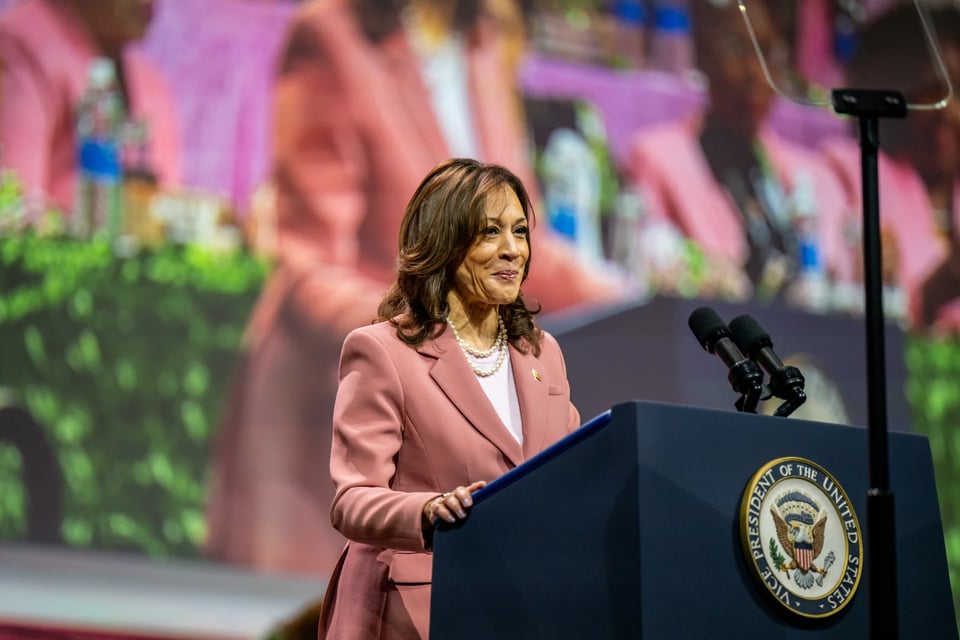
The Alpha Kappa Alpha, Inc. has formed a political action committee, allowing the country's oldest Black sorority an avenue to raise money in support of federal candidates.
Democratic presidential nominee Kamala Harris is an alumna of the sorority, part of the "Divine Nine" group of historical Black fraternities and sororities which together have more than 2.5 million active members across the country, and has made the groups a focal point of the campaign, even before Biden quit the ticket on July 21. Harris addressed AKA's annual convention in Houston earlier that month.
The sorority's new political action committee — which complements an existing voter registration, education and mobilization coordinated campaign among the organizations — is the latest indication of a wave of enthusiasm for Harris among Black Americans, whose early and enthusiastic support helped ensure Harris' uncontested glide path to the nomination following Biden's withdrawal.
In the hours immediately after President Biden called it quits and backed Harris, the Win With Black Women political action committee spurred more than $1.5 million in fundraising in a Zoom donation drive and inspired a wave of similar efforts that raised tens of millions more.
Now, Harris has a 51%-48% lead over former President Trump, according to the latest NPR/PBS News/Marist poll — in part due to her strength among Black women and voters of color more broadly.
That strength is expected to make a number of states that once appeared to be slipping out of reach for Democrats under the Biden-Harris ticket, including Georgia and North Carolina, competitive come November.
Harris has momentum, but the race is still tight. Here are the paths to the presidency.
NPR reached out to Alpha Kappa Alpha for comment and did not immediately hear back. (NPR).
Coach Walz shows his moral nature again.
HELL YEAH!!
— CALL TO ACTIVISM (@CalltoActivism) August 10, 2024
(Crowd chants “lock him up”)
Walz: “Better yet, beat the hell out of him at the ballot box!!”
pic.twitter.com/SbN7HZgOJQ
Tim Walz - the teacher you always wish you had.
Tim Walz Was My Teacher 20 Years Ago. Here’s What I Learned. - POLITICO
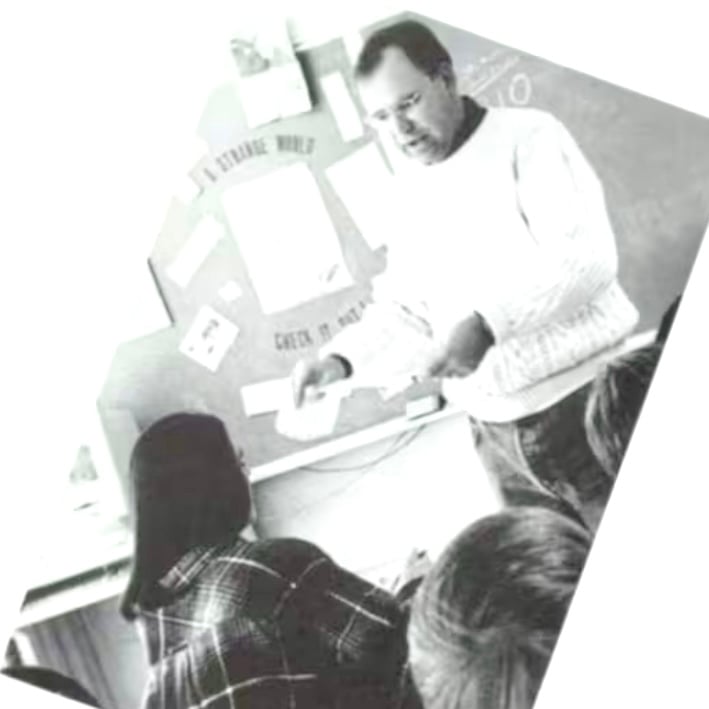
Most of the nation might have just learned of the existence of Tim Walz, but Sam Hurd has known the vice presidential candidate for nearly two decades — since Walz was Hurd’s junior year geography teacher at Mankato West High School from 2005-2006.
Walz has made his life as a teacher a selling point in his political career, including in the jockeying ahead of being picked to be Kamala Harris’ running mate. To get a sense of what he was really like as a teacher, POLITICO Magazine reached out to Hurd, now 35, and himself a middle school teacher.
In an interview, Hurd recalled that Walz didn’t overload students with homework, but challenged them in other ways — forcing them to wrestle with issues like the Cambodian genocide and how the French government treated its Muslim citizens.
And Walz was never sitting, always circling the room.
“Wearing a tie and sweating profusely and just working his ass off as a teacher,” is how Hurd remembered him.
Walz left such an impression on Hurd that the former student, who now lives in Baltimore, made the drive up to Philadelphia on Tuesday to see the very first Harris-Walz rally.
He never made it inside the packed venue, but as he waited in line, word spread that he was a former Walz student, and he was challenged by Pennsylvanians who had been rooting for Gov. Josh Shapiro to be Harris’ vice president choice instead. All he had to do, Hurd said, was point to Walz’s charisma: “As a teacher 20 years ago, that’s who he was.”
This conversation has been edited for length and clarity.
What’s the first word that comes to mind when you look back on Tim Walz as a teacher?
Passionate and service-oriented. I think those are the two things that pop for me.
Was he known as a tough grader? Was he a strict teacher, or someone you knew would give an extension?
I only had him for a year, and it was actually his last year before running for Congress. And the thing that I would always hear about Walz was that he’s not really a homework guy, so long as you could reasonably show up, participate in discussions and just have thoughts that you could articulate. He wasn’t really a lecturer. He valued the thoughts and experiences of kids. He was known for treating kids quite a bit like adults in that way.
On Fridays, we would focus on current events and he would have this rotating group of students do a little bit of their own research and bring in about two or three minutes of context. And then he would open the floor and the rest of class would be an active discussion. I remember him grading us quite a bit on our ability to look something up, give a little bit of context about it, and try to come up with questions that would get our classmates to talk and think and care about it.
Do you remember any of the current events that sparked deep conversations or debates?
There was one that stood out, now that I look back on it in 20 years. We were reading about France’s attempts to come up with social policies around Muslim women covering themselves in certain public places, and whether or not we believe that to be a Western ideal or an example of this demand for democracy gone a little bit too far, that’s maybe not as respectful as we want it to be of cultural differences and identity.
I was doing a lot of listening that day. Walz did a really good job of making kids feel that cognitive dissonance of what it’s like to grow up in the most powerful country in the world, but also these things that you would never consider as a white middle-class kid in southern Minnesota.
Did Walz participate in the debates or just moderate?
He was mostly a moderator. He could flavor things with his own experience and people that he talked to, but he was infinitely more interested in getting kids to talk to each other.
Do you remember what his classroom looked like? Any notable items on his desk or walls?
His room featured lots of flags and photos. He was one of many teachers in my school who felt compelled to show kids that there’s a really big world out there. He had a few hand-carved or hand-painted gifts that he’d received in the past. He spent considerable time around China, so I think he had some pottery and some paintings.
Somewhere toward the whiteboard, at eye level, he had a giant photograph of Angkor Wat in Cambodia. When I later went to Cambodia, I thought of him, and remembered seeing this incredibly exotic, beautiful place. [As a student,] I was like, “There’s no way I’m going to get there. I’m just a kid in high school from Minnesota.” That was just another one of those subtle things that if you were in a Walz classroom, you kind of felt like you could do those things. He made students feel like that was within their reach no matter who they were.
There wasn’t anything special as to how his room was organized. But we would sit and face each other in a circle when it came to discussions, and that was cool. That was something that I didn’t have a lot of practice within my other classes.
Tim Walz seems to have an endless stockpile of dad jokes. Do you remember any jokes he’d tell to the class?
He clearly loves working with kids, and has this relentless energy.
There’s something humorous about him showing up every day wearing a tie and sweating profusely and just working his ass off as a teacher. I don’t think he ever once sat behind his desk and did anything. He was always circling the room. He was always sitting on a desk and talking to you. There was no “Now it’s time for work. It must be quiet. I’m going to sit behind my desk now, and you guys are just going to be working away at things.”
I don’t think he was as funny as he was irreverent in weird teacher ways, and yet we all knew this resume that he had, and we’re like, “Wow, he’s a football coach. Wow, he’s a vet.”
There’s not really anything that seemed to faze him. That was sort of a disarming thing about him — his life experience made you feel more comfortable. He gives you a sense of security because you can just tell that he’s encountered a lot of different people in his life. He’s a pretty calm, collected dude. I think we all probably treated him in a slightly different way than all of our other teachers because of it.
He was the picture of humble, masculine service energy in our school. There was a student who, I want to say in 2002 or 2003, came out to Walz, and that was really the only adult or maybe teacher that they had come out to before as gay. And Walz was pretty determined to, if that student was up for it, start a Gay-Straight Alliance at our school. Walz, I think it wasn’t lost on him — the idea of him being a football coach and military guy. To him, that’s just what you do for kids.
You mentioned that you were a student volunteer for Walz when he was running for Congress. What was that like?
There were probably — in terms of student volunteers — about a dozen of us or maybe a couple dozen of us across different grades that were pretty hardcore in terms of going to parades, phone banking, doing all the grassroots kind of stuff.
I remember Election Day in 2006, I was excused for the day to go canvass around town and drive people to the polls. It was the first time, and really the only time that I’ve ever done something like that.
What was it like to celebrate Walz’s victory with him?
On Election Night, the party for Democrats was at this big hotel downtown in our hometown, and it all happened pretty late. It was a Tuesday night — a school night — but my dad was there so it was all good. Me and my friends and Walz’s circle of student volunteers all got to be backstage a little bit. It was probably only 10 p.m. but it felt like midnight to me.
When he won, Walz was like, “Guys, we’re going to run out there together and come up on the stage.” When he ran up to the podium, he asked us to come up. And he just circled everybody up and jumped up and down for a little bit. I remember him just saying, “We did it. We did it.” It was just hugs and jumping and screaming long before there was any kind of ladies and gentlemen acceptance speech.
Some of Walz’s past assignments have gone viral — such as when his class basically predicted the Rwandan genocide a year before it occurred. Do you remember any unorthodox projects or lessons in his classroom?
I remember him being one of the few adults who would pretty openly talk about genocide. He spoke a lot about genocide in Cambodia. Some of these terms that he would throw out, like “killing fields” — I remember on a trip to Cambodia, I got to go to Phnom Penh and see the prisons and killing fields. And I thought, “Oh my God, that’s what Walz was talking about.”
I remember starting that discussion by getting inside the heads of lawmakers and politicians and dictators. I think we did a little bit of reading on Pol Pot himself, because to us that was such a faraway place as a 15- or 16-year-old. I think the hook was just trying to get inside the heads of dictators and leaders who overstepped their boundaries.
You are now a teacher yourself. Is that at all because of Walz? Has he shaped your teaching style?
He’s certainly one part of it. When I think about the things in my current teaching that are all kind of credited to Walz — a lot of the warm-up games and activities in my classroom are definitely geared toward the world a little bit. When we have free time, I try to encourage kids to think about what’s going on in the world, and think about just how big the world is. (Politico)
Gov. Tim Walz doesn't own a single stock.
Investors are sure to differ on the economic policies and record of Tim Walz, the Minnesota governor whom Kamala Harris yesterday picked as her running mate.
But here's something on which everyone can agree: Walz isn't going to be talking his portfolio.
State of play: Walz doesn't own a single stock, according to financial disclosures and confirmed by a spokesperson. Same goes for his wife Gwen, per tax filings.
His disclosures, both from his final year in Congress and his time as Minnesota governor, also show no mutual funds, bonds, private equities, or other securities.
No book deals or speaking fees or crypto or racehorse interests.
Not even real estate. The couple sold their Mankato, Minnesota, home after moving into the governor's mansion, for below the $315k asking price).
Zoom in: Their only investment assets appear to be via pensions, including teacher pensions.
The big picture: This lack of investment is highly unusual for elected officials. Particularly high-profile ones vying for federal office.
It's also reflected in some of what Walz did while in Congress, such as introducing the STOCK Act, which was aimed at curbing insider trading by congresspeople and other federal government employees.
The STOCK Act was signed into law by former President Obama in 2012, with Walz by his side, although its effectiveness is questionable.
Walz as governor signed a 1% tax surcharge on capital gains and other annual net investment income over $1 million. He's also chair of the Minnesota's board of investments, which manages state pension funds. (Axios).
2024 marks the 2nd time a woman is Presidential candidate for a major Party.
1993 marked the 2nd time a woman joined the Supreme Court.
RGB served from August 10, 1993 to September 18, 2020.
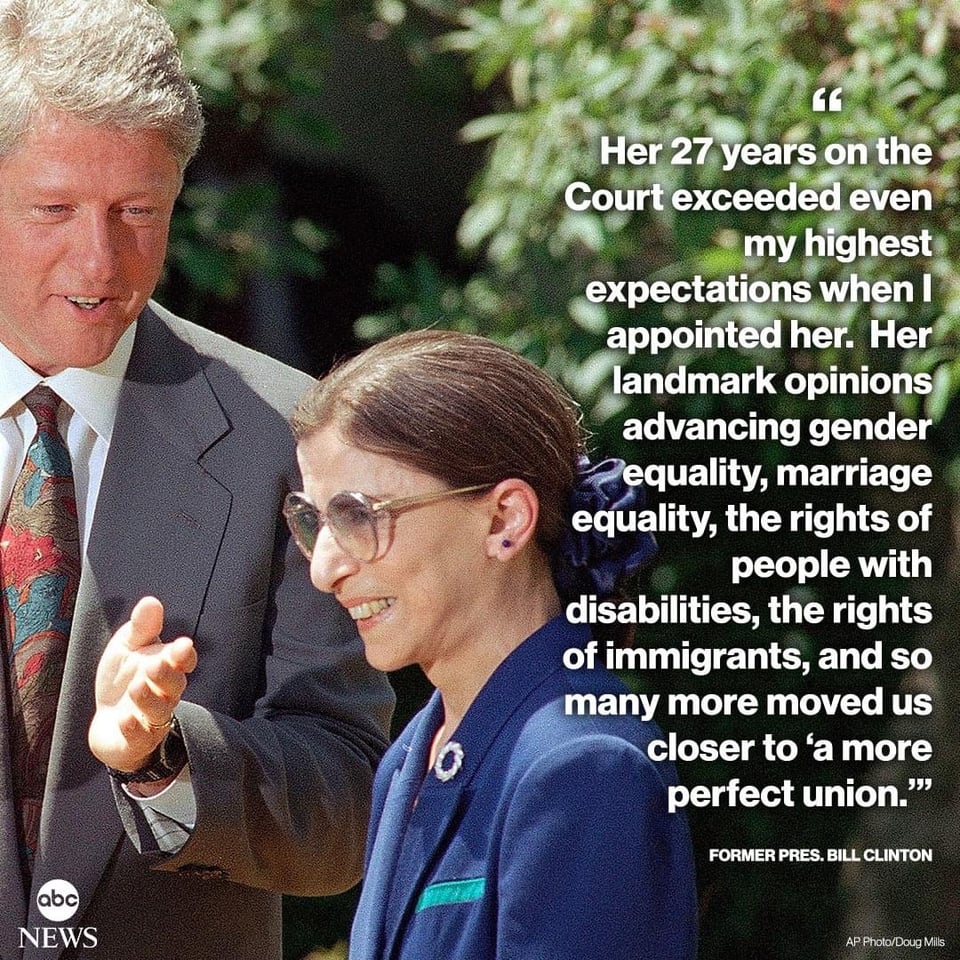
The weird folks running against Harris-Walz.
And this list doesn’t even include Trump’s reliably bizarre running mate.

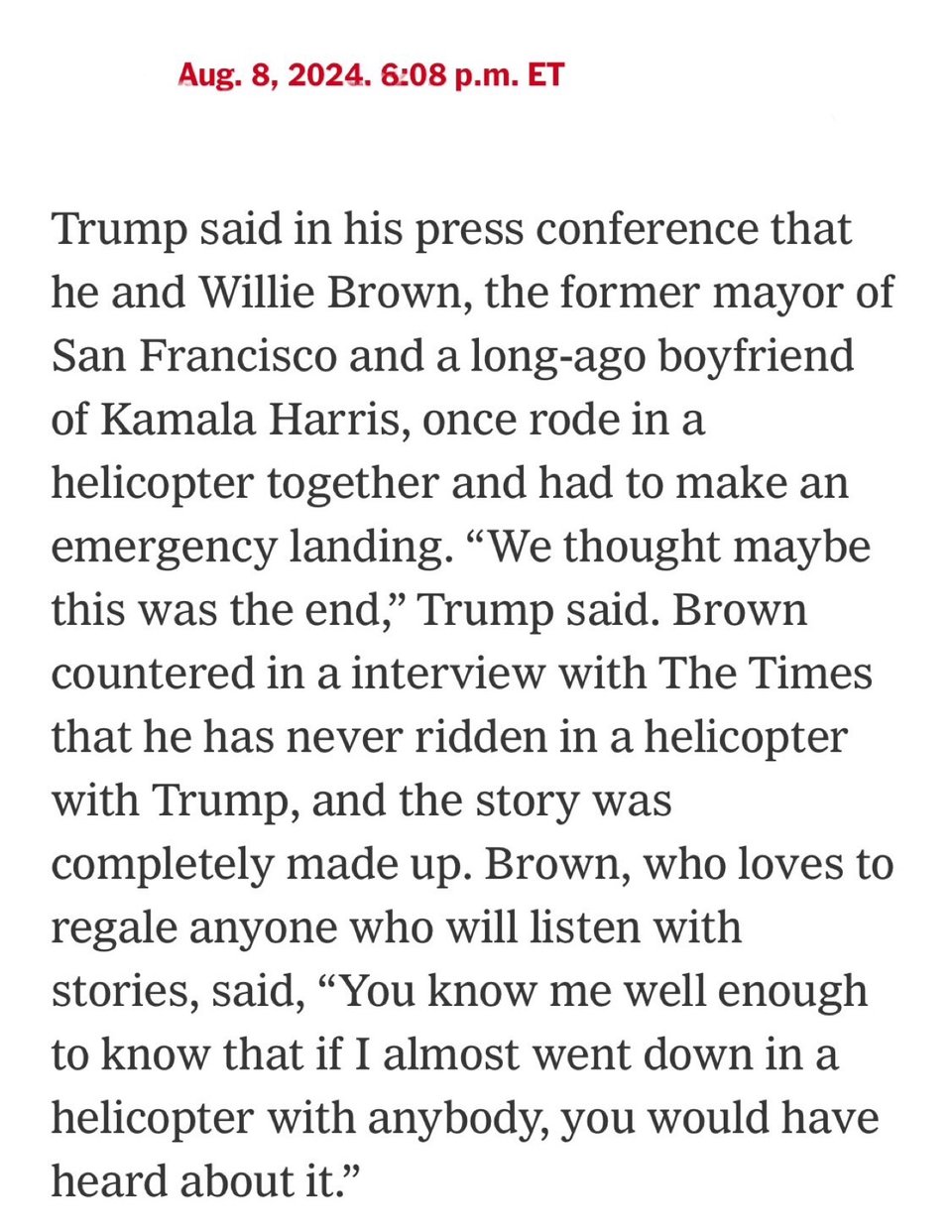
Never knew he was white. I thought he was orange. And then, one day, he just decided to become white. pic.twitter.com/n0punrUvTa
— Hoodlum 🇺🇸 (@NotHoodlum) August 9, 2024
Your daily reminder.
Trump is a convicted felon.
On May 30th, he was found guilty on 34 felony counts by the unanimous vote of 12 ordinary citizens.
The Convicted Felon Donald J. Trump was scheduled to be sentenced on July 11. He will now be sentenced sometime around September 18th.
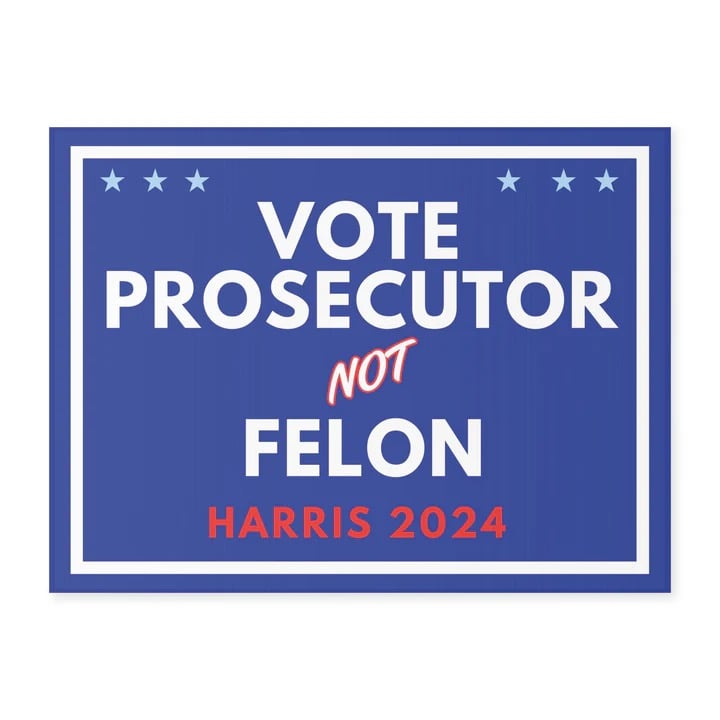
Olympics update.
The thrilling finish saw superstar Sha’Carri Richardson surging past runners from Germany and Great Britain to win by .07 seconds. She shares the gold with teammates Melissa Jefferson, Twanisha Terry and Gabrielle Thomas.
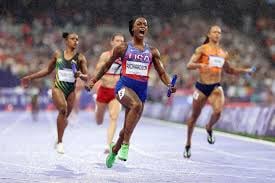
Semi-final Victory. Team USA Women’s Basketball Team which features Liberty Stars, Breanna Stewart and Sabrina Ionescu, defeated Australia, 85-64, with Liberty coach Sandy Brondello, a native Australian, coaching the Aussies.
USA will play France on Sunday for an eighth-consecutive and 10th overall Olympic gold medal at 9:30 am EDT. The USA Men’s Basketball Team will play France for the gold too, at 3:30 pm today, Saturday.
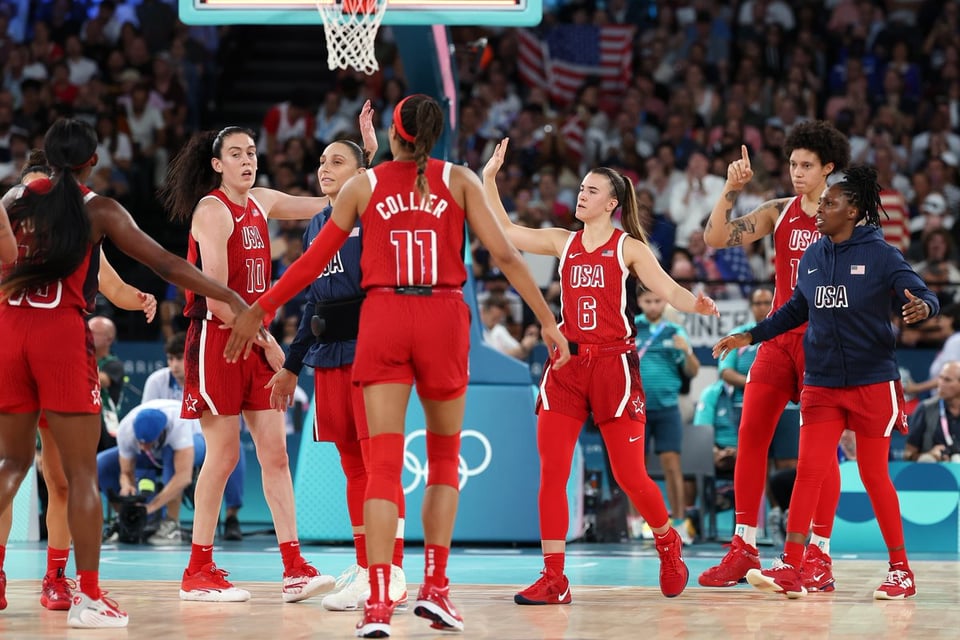
A’ja Wilson of the Las Vegas Aces leads women’s Olympic basketball with combined steals and blocks at 20. She has committed just 1 foul.
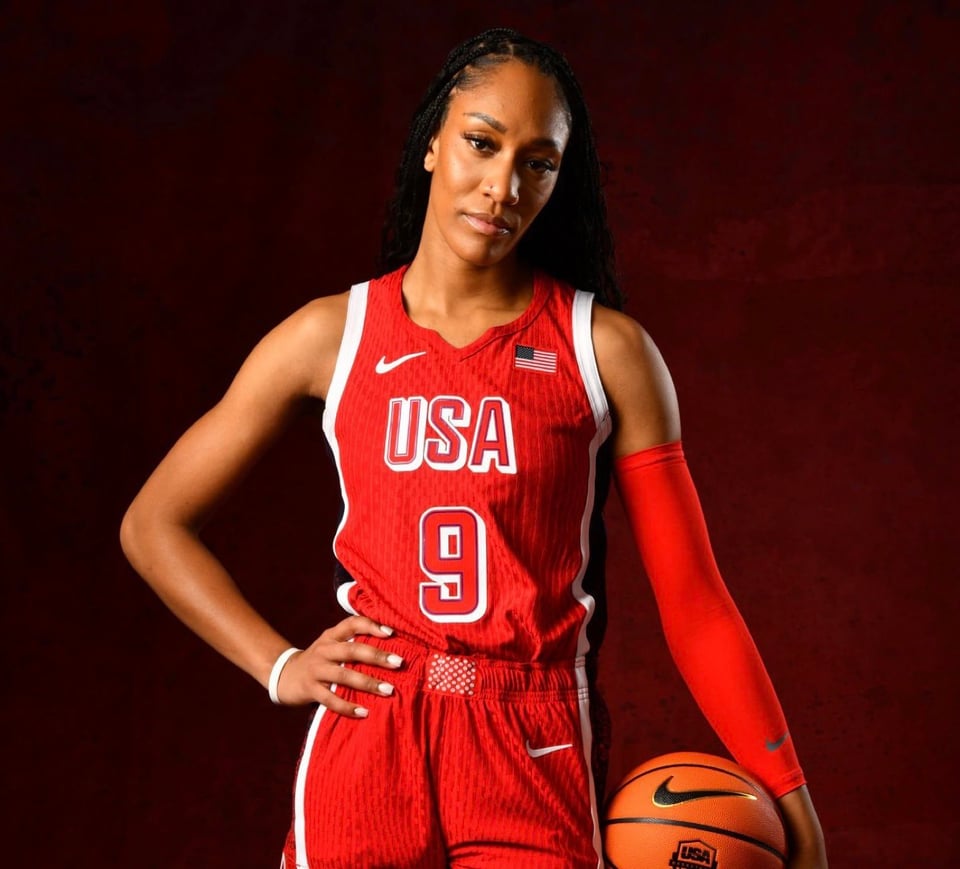
After three silver medals in the 400-meter hurdles at the Olympics and world championships, American Rai Benjamin convincingly beat Karsten Warholm and Alison dos Santos at the Paris Games on Friday.
“I got it done,” the 27-year-old Benjamin said. ”It has eluded me so long. ... I don’t think I ever doubted it. It was more just staying patient and keep showing up every day and something has to shake. I told myself, ‘This has got to go my way at some point.’ And it went my way today.”
Benjamin clocked 46.46 seconds, finishing several strides ahead of Warholm (47.06) and Dos Santos (47.26).
Benjamin flashed a wide grin when he crossed the line and let out a scream while Warholm slammed his hand on track. (Associated Press).
